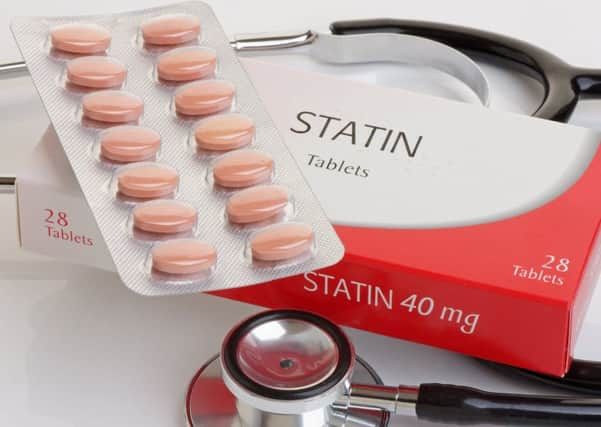Dr Malcolm Kendrick: Side-effects of statins should not be ignored


Yesterday, I was asked to appear on various programmes to discuss a study “proving” that statins cause no side-effects at all. Or, at most, they may cause muscle pains in around one in 10,000 people, no more. At the same time, statins save thousands of lives a year, therefore, everyone should take them, and patients should ignore scaremongering doctors – such as me, I suppose – who say side-effects are common and potentially serious.
On the radio, the main author of the study, Professor Peter Sever, suggested that leaflets warning of side-effects should be removed from packaging, because once a patient reads that there may be side-effects, they will be far more likely to report having them.
Advertisement
Hide AdAdvertisement
Hide AdThis is the so-called “nocebo” effect – the opposite of the placebo effect, whereby people taking medicines think they will get better, or that their pain will be reduced.
There is no doubt that the nocebo effect is real, although the placebo effect is also real, so do these two effects not just cancel each other out? This is a difficult area of medicine, disentangling what is real from what is imagined.
However, I watched my father-in-law become unable to walk whilst taking statins. We were pushing him around in a wheelchair until, eventually, he agreed to stop his statins. At which point he became able to walk a good distance again, and even climb stairs. A “nocebo” effect? All in the mind? No, of course not.
I had a patient with such severe abdominal pains that she was going to undergo an investigative laparotomy to establish what was causing them. No investigations had revealed anything. I suggested she stop taking the statins and the pains had completely gone in two days. All in the mind? I have spoken to many other GPs who have reported seeing side-effects in many patients taking statins.
I suppose if you are trying to push statins as hard as possible, and you built your academic reputation on running trials on statins, you will naturally want to push them as hard as possible. Some “experts” have even suggested putting statins in the water supply.
But this latest report pushes things to a completely ridiculous point.
Can I, as a GP, simply tell patients reporting side-effects that “you do not have a side-effect, they do not exist, it is simply in your mind”? No, this would be completely ridiculous, and a total denial of the GP’s job, which is to listen to what patients tell you, not to take a horribly “I know best” paternalistic position.
On the other hand, the benefits of statins have been hyped to an almost completely ridiculous degree. We are told that they reduce the risk of having a heart attack by 30 per cent, which sounds highly impressive – if you, like almost everyone, including me, does not understand statistics.
Advertisement
Hide AdAdvertisement
Hide AdThe reality is that, unless you have had a previous heart attack, statins have no effect on overall mortality. To put that another way: they don’t save lives. They don’t even prevent heart attacks or strokes in women with no previous history of heart disease.
The statistic you really want to know about statins is the following. If you have had a heart attack, or stroke, and take a statin for five years, you will increase your life expectancy by 4.2 days. Balance that against a 20 per cent chance of having side-effects, some of which are very unpleasant and long-lasting, and you can see why I’m not a fan of statins.
Dr Malcolm Kendrick is the author of The Great Cholesterol Con